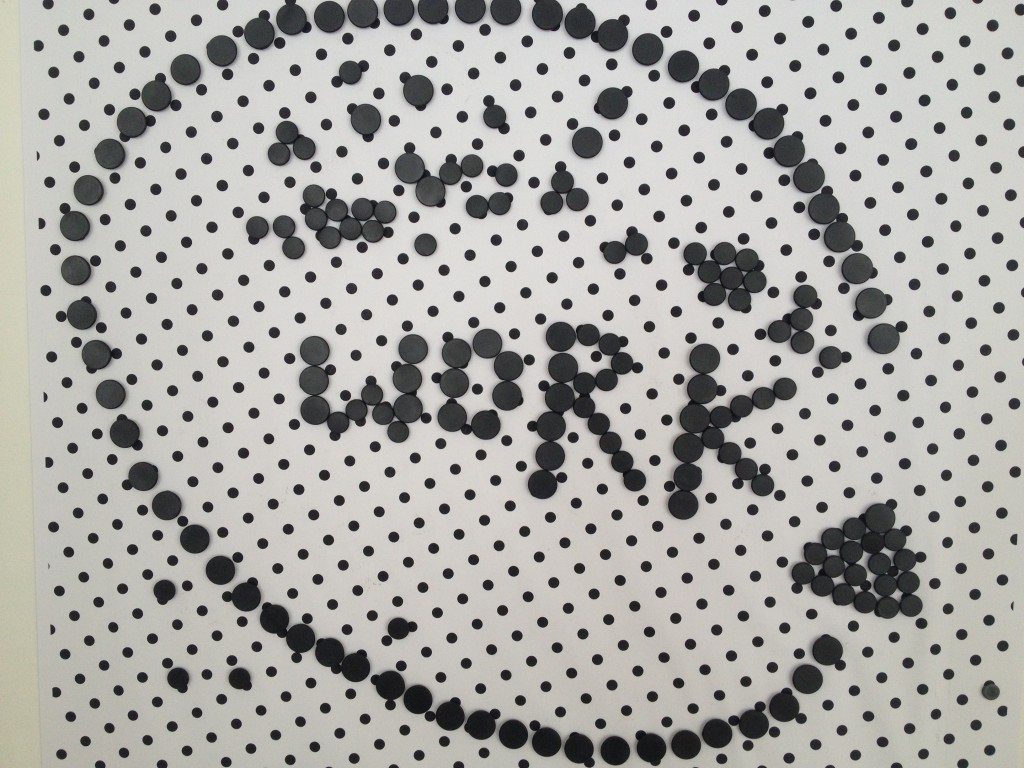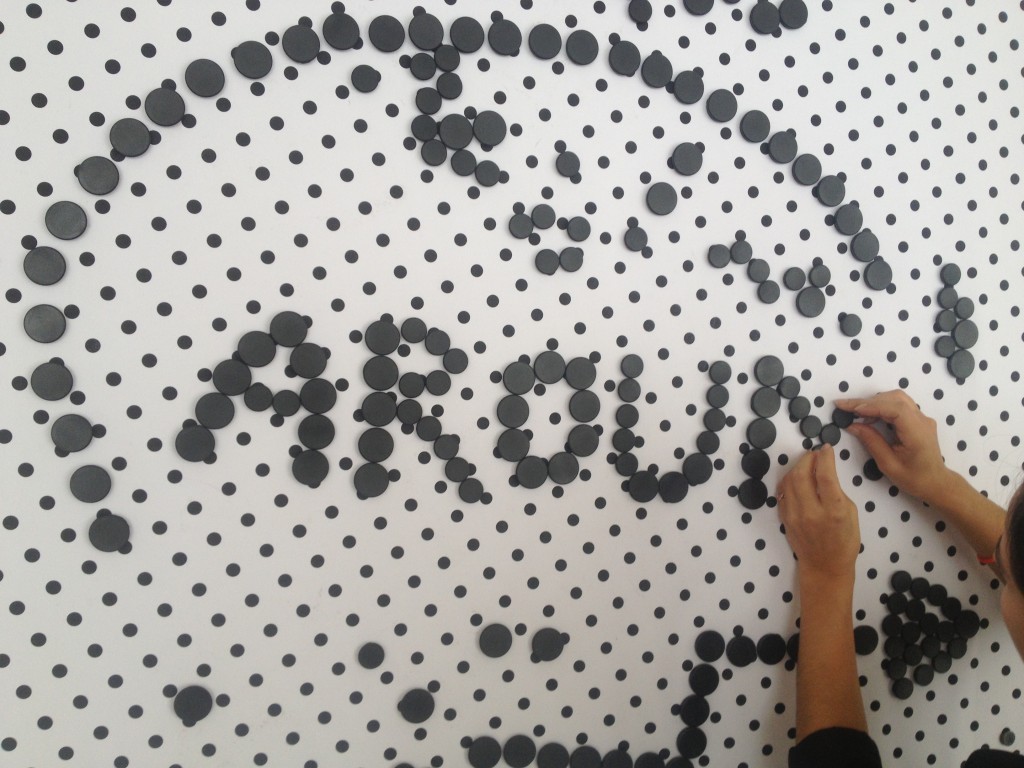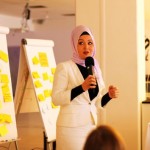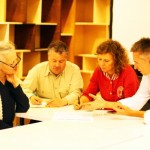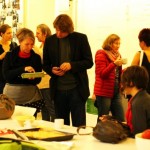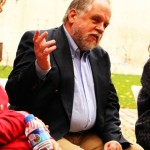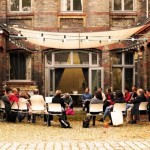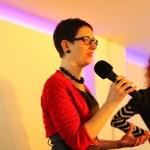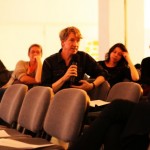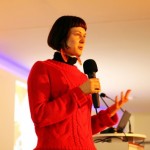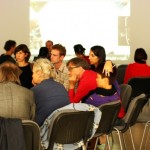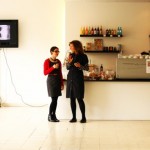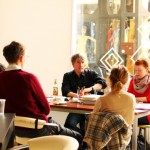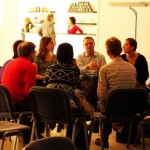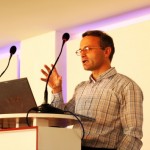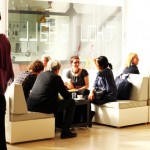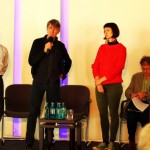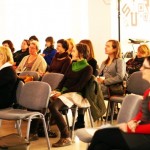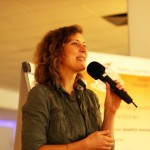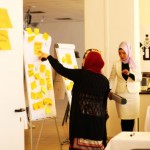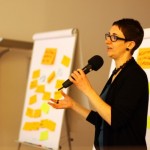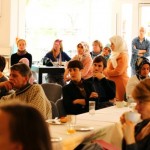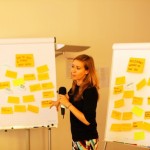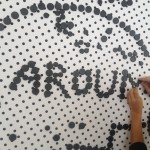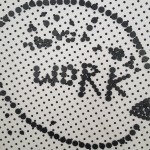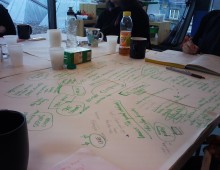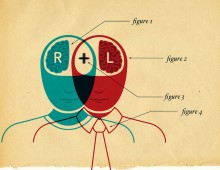Berlin | 2013
WORKAROUND was a three-day conference, symposium and community meeting about self-employment, self-organisation and new notions of work I co-curated with curator and founding directors of Supermarkt, Ela Kagel, that took place from 18th – 20th October 2013.
The idea for the event came about after Ela and I came into contact with one another after Supermarkt hosted the European Forum of Independent Professionals (here’s a blog I wrote about it back in February 2013). We began discussing the ways in which “work” as we once knew it had changed profoundly since the age of the full-time permanent contract, and likewise how initiatives around the world were starting to find ways to deal with these changes – often through grassroots and collective activities.
I quickly realised that Ela and I shared a passion not only for raising awareness of the negative situation now facing freelancers and workers today, but also shared a desire to create a situation where people could actively participate in discussing common issues and find solutions for change.
The event also seemed a natural development of my own curatorial interests on both a practical and theoretical level. Since I began curating 10 years ago, I have always been curious about the ways in which creative practitioners work, whether it be the ways in which people create their artwork, or the ways in which artists learn and transition from education to working in the arts industry. Professional development for artists is something Contemporary Art Exchange has always encouraged through international projects, exhibitions, residencies and workshops, where a “learning through doing” experience I believe is crucial for every arts practice. While artists throughout history have explored the concept of labour as a subject matter, I am interested in the ways in which artistic practices themselves are changing at a time when labour within the field of contemporary art has become increasingly challenged and questioned. One need only think of recent publications by On Curating dealing with the precarious nature of labour within the field of art, Art Leaks’ articles highlighting the plight of the underpaid artsworker or the unfairly treated biennial artist, and arts activist group W.A.G.E’s “infomercial-dramedy” criticising unpaid artists at last year’s Documenta.
As someone who began their career as a volunteer and an intern, and having worked closely with a number of recent arts graduates both in the UK and Australia, I am all too aware of the problems facing young people entering the arts sector, and those striving to survive as freelancers – outmoded university courses that don’t prepare students for the realities of operating as an artist, the widespread proliferation of unpaid internships, the lack of guidance for employers of the volunteer, intern or freelancer….the list goes on. Thus, this event was a perfect opportunity to ask the questions: why should we work in competition with one another when we can learn better strategies for sustainable creative work practices from one another? And, what can we as artsworkers learn from other disciplines and other areas of work?
While the conference is now finished, conversations and meetings between various members of the Berlin community continue to take place surrounding the possibilities of developing alternative models for sustainable co-operative or collaborative working. If you’d like to find out more or get involved, email kate@contemporaryartexchange.org
WORKAROUND Event Description
The working world as we know it is in a state of profound change: long-term work commitments are being increasingly replaced by project-based contracts, bereft of fundamental collective agreements and employment laws for which people have been fighting over for centuries.
Our enthusiasm for freelance work has cooled down since realising that it is mostly employers who profit from the often hailed concept of “flexibility”. Because most work-related services are still based on the paradigm of employed work, the increasing numbers of freelance workers in Germany now face a situation where neither the state administration, nor sectors such as finance or insurance, are prepared to meet the special needs of self-employed workers.
Furthermore, the concept of “freelance” is applied mostly to the young, media-savy people of the creative industries, ignoring the fact that more and more craftspeople, community workers or teachers of all age groups are becoming freelancers too.
Those who have work are in fear of those seeking for it, who might be cheaper and more flexible to deal with. In fact, most freelance salaries today do not reflect people’s skills, education or creation of worth. In a city like Berlin, it has become quite common to ask potential employees to fundraise their own wages before they can start working. A labour market, which consequently favours the fittest, leaves no space for gender balance, social inclusion or solidarity.
In contrast to these developments there is a growing scene of social innovators, activists and initiatives who have started working around the system. Their call to self-organisation redefines the notions of work and value creation. Unions, cooperations and collectives have begun to re-appear on the public landscape, developing new models for banking, housing, solidarity or workers rights representations.
While it is not that all of these models are new per se, many of them have been under the public radar for quite some time, as during times of economic growth they aren’t needed as much. However, with the current global financial crisis, communities are starting to return to these structures and bring them back to life, this time with a new twist and all the challenges that come along with this process: whether its the search for new organisational structures, the redefining of their vocabulary or the development of new platforms to collaborate with diverse players, including current political administrations.
During this three-day symposium, workshop and community meeting, we will look into various models of work organisation and community approaches that ensure life and work quality. We look behind the cliché of the freelance worker and explore the old and new territories of unions and cooperations as tools for achieving common goals. Finally, we will round off the symposium with an interesting exchange of strategies and structures of self-organisation.
Programme (Click on the individual days below for more information)
// WORKAROUND DAY 1: Friday 18 October, 9am—12pm
Freitagsfrühstück, Workshop & Presentations: Beyond the cliché of the digital bohème! Freelance structures in the Brunnenviertel microcosm
// WORKAROUND DAY 2: Saturday 19 October, 11am—6pm
Symposium: Bringing the union back to life! Workers rights, banking, real-estate and community
// WORKAROUND DAY 3: Sunday 20 October, 2—6pm
Community Meeting: Let’s get started! The self-organisation of time/labour/money
Photos: Michelle O’Brien

